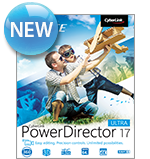Get ready to be impressed because Eddie has done work for Godzilla, Captain America, Game of Thrones (I know! Serious stuff, huh?), The Maze Runner, Ender's Game, Furious 7 and more. Check out his demo reel below:
1. Since we're on VideoEditingSoftware.com, of course I have to ask you: what video editing software do you use and why?
When I first started editing in high school I used earlier versions of Adobe Premiere, but as its capabilities began to wain in comparison to my needs I moved towards Final Cut Pro throughout university.
However, Apple seems to have completely abandoned that software and it fell behind the times whereas Adobe totally changed the game with Premiere 6, so I fell back to using that for my personal projects.
At the office though, that is totally dependent on the studio and what software fits into their pipeline, so I have to be casually versed in many programs out of necessity.
2. When did you start making videos?
I started making videos when I was a kid on my parents camcorder with my brothers and neighbors. It was a lot of fun; from there I moved to making them in high school in the after hours film and video class, unfortunately that was a disaster and not one of those movies survived the class for so many reasons.
The first completed fully edited short I ever made wasn’t until university, and I can say without a doubt it is one of the worse things ever made. Now that film lives on my bookshelf never to be seen ever again, for good reason.
3. Have you attended any cameraman/editing/directing classes or courses?
I took for fun film classes in high school and university, but on the record officially… No I have not. Even how I learned to do Visual Effects was self taught, so I am both lucky and grateful to have been able to get my foot in the door.
4. Do you prefer to work alone on a small project or do you always have an assistant?
When I work on wedding shoots I prefer having an assistant or even two or three, but sometimes it is just myself, it all depends on what the bride and groom want out of their video and what their budget is. For instance the latest wedding video I shot was done just by myself. In those instances this is typically all the bride and groom want just a quick montage highlighting the day.
The necessity for bigger teams comes around when the couples are looking for complete videos of their special day, then I need more footage to cut to when I am changing angles or in the event of a technical error. The longer the video requested the harder it is to capture everything.
I always look at it this way, a wedding photographer (I have done this job as well, so you know I am not just making this up) only needs a handful of good shots throughout the day to make the bride and the groom happy, they also usually get time designated with the couple for that one on one intimate photography session.
A videographer gets one chance, one instance to not screw up or the linear edit is ruined, which in all honesty always scares the hell out of me, not to mention how much more gear is involved. Yikes.
5. Do you intend to make films for a larger public audience? (Hollywood style)
It is my dream to one day direct feature films. Words can’t describe enough how much I want that to be my job. This notion that you are creating a universe, an entity, a thing for the world to judge, love or hate is something that just inspires me to create.
The trick now is just getting myself out there, and create more than I currently do.
6. What do you like most: filming or editing?
I am a filmmaker through and through.
Editing I find way too stressful for some reason or another. Two of my friends are way better at it than I, so I rely on them heavily for some projects, but it isn’t to say that I don’t love sitting with them directing and putting my two cents in.
7. Which is the most important piece of video gear you use, apart from your camera? And by the way, what cameras do you use?
The most important piece of gear for me is my notebook. Whenever I start a new project the first thing I do is go and buy a new notebook solely for that project. I write anything and everything down, notes to myself about a shot, different ways to approach a shot, random excerpts from my day, literally everything goes in them.
Then at the end of the day I go back over these scribbles and make notes of the notes, removing the obscure tangents and just try and make sense of it all, from there I take those thoughts and apply it to the next days work.
As for cameras I am a Canon guy through and through. Depending on the projects I have had all manner of combinations from this list: 7D, 5D II, 5D III, T3i, T5i, GoPro Hero 2, GoPro Hero 3, Sony Ex1 and the Red Epic.
I don’t actually own all those but I do rent them when necessary and like I mentioned early I just bought the GoPro Hero 4 Black and I am so excited to get to test that out.
8. What was the hardest video to make?
“Getting A/head In Life” - definitely.
My friends and I entered into a quick flicks challenge competition, where we had 48 hours to write, cast, shoot and edit our film all the while featuring 4 randomly selected criteria to ensure an inability for teams to cheat. For us we had to feature the line “somebody ditched it,” a location of a park, someone with the career of personal life coach and feature the blue cooler bag seen throughout the film.
We sat around for hours the first night trying to hash ideas out. We had everything from Richard Simmons in the bag, to a severed head in the bag and somehow we sort of just combined the two and it sort of worked.
The trouble we ran into was we never actually stopped to think about how we were going to get the severed head in the bag and still have it talk. Which, if I had known what I knew now in conjunction to my career would have been easy, but at the time that was one giant issue.
I figured out a solution: write at the wire and it all worked out but right up that moment we were all panicking. It worked out ok mind you, as we did win in the end.
9. What's the video you enjoyed doing most and why?
To date it is also the hardest movie I have had to make “Getting A/head In Life”
That project had such a solid team, that we all worked together and everyone knew where each others strengths and weaknesses were so we could all work together to push one another.
It also helped that at the time I was caretaker for a large 6 bedroom house that was completely empty so we had our own private makeshift film studio to work in.
We all took shifts editing throughout the night and driving to various locations with our actors to get everything done on time. By the end of the second night we had laughed ourselves to exhaustion over beers and pizza as we worked.
It was just a lot of fun to do. Since then the same group of us have done a handful of tinier projects together:
“Doritos Atomic Spice” and “Man Date” are just two.
10. What do you recommend to a beginner who wants to become a professional videographer?
That one is easy, just keep making videos.
Get them out there listen to public feedback and criticism and take notes. Watch your own work over and over again and be critical of it. The worst thing any artist can do is develop object blindness to their own faults and failures.
You can always learn something from your previous works even if it is as simple as knowing what did and did not work, because now you won’t make that mistake again, instead you get to make whole new ones and learn from those.
11. Does your job involve video editing? What kind of productions are you involved in?
I am a Visual Effects Compositor, so no I don’t get to do much video editing for my full time job.
We do work closely with the VFX Editors as a means to present our work to the various clients for review and feedback, but primarily we work on the presentation of a single shot or a handful of shots within a given sequence making sure everything blends together seamlessly.
The software I use most commonly day to day is Nuke and NukeX which are node based scripting programs, which for the most part is the industry standard in terms of compositing software.
I just recently wrapped work on “Furious 7,” and “San Andreas” I have become rather accustomed to seeing The Rock’s face over this last year. Presently though I am working on both “Pan” and “Batman v Superman: Dawn of Justice.” After that though, who knows.
12. Are you interested in YouTube? Like being a youtuber/vlogger?
I love YouTube, a couple of my friends tried putting together a channel a few years back, but we never had the time to totally invest in it, nor a clear goal so the quality kind of suffered and in the end we abandoned it.
But we talk about revisiting the medium again and all learned from our previous mistakes, so it would be a totally different go a second time around.
I also have, what I am calling, an amazing idea for vlog solo project, which I may make an attempt at filming some sort of a pilot for in the next couple months. I have to say months as the scale is kind of large and in its current state potentially not even feasible, especially if the audience doesn’t jump right on board immediately, but really only time will tell.
In a perfect world I would pitch my idea to a company like Netflix and try and get it off the ground that way since they seem so open about the creation of original content, but that is a door I am yet to figure out how to open.
Conclusion
I've seen this over and over: a lot of successful people never actually followed the proper schooling for their career. They're self taught - self made. Ed makes no exception and that's encouraging. This means that work and dedication are the great equalizers.
Your takeaways:
- Don't fuss about formal education - just do it and learn as you go (the internet has all the tutorials you need)
- Publish often and critique your own work while also taking in external feedback
If you enjoyed this article, click to get free email updates.
You like my stuff? Help me out and spread the word. Share this. Thanks!












